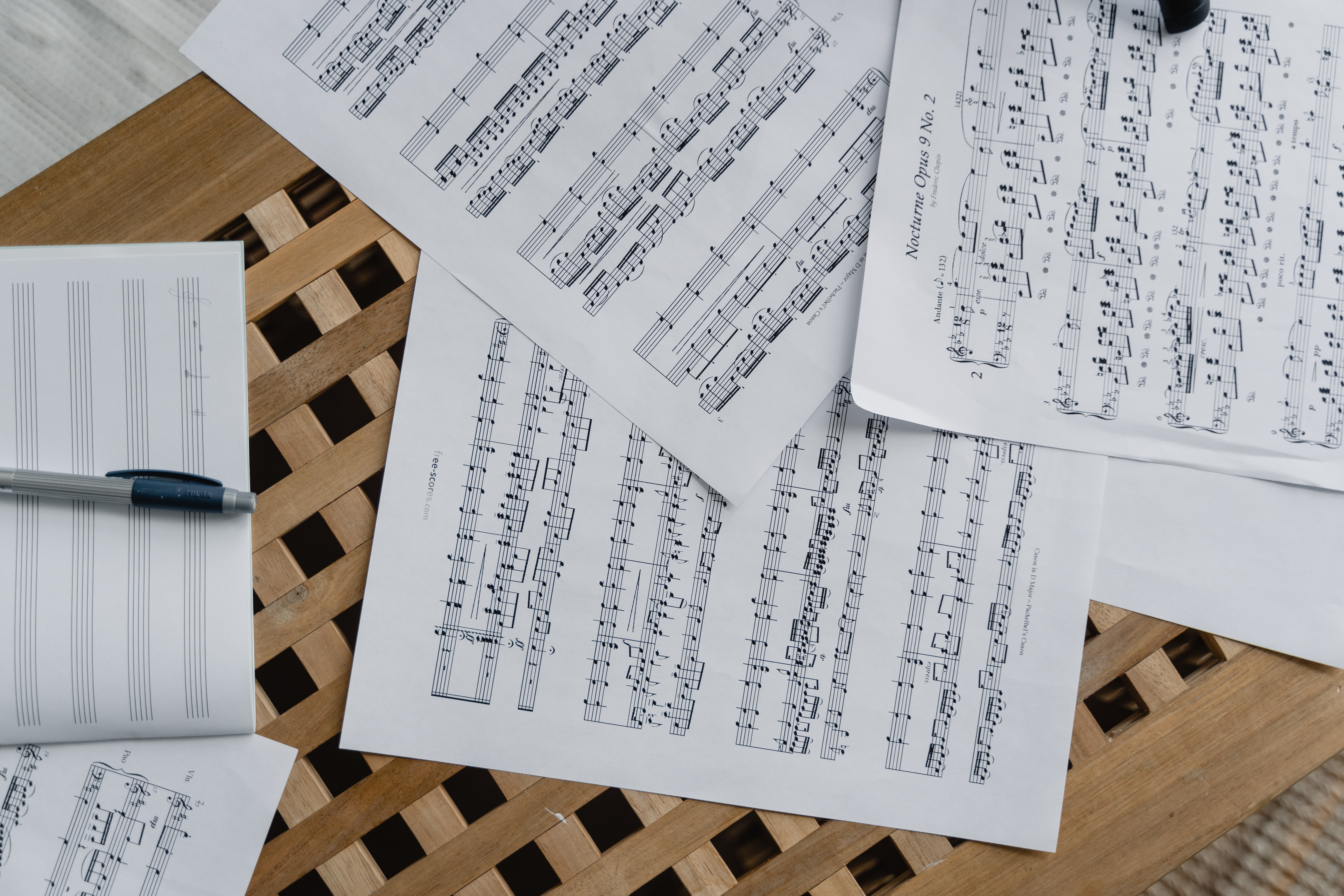This post contains affiliate links and we may earn a commission when you click on the links at no additional cost to you. As an Amazon Affiliate, we earn from qualifying purchases.
Our top picks for the best homeschool music theory curriculum for high school:
- Alfred’s Essentials of Musical Theory
- Theory Time
- The Complete Musician
Music theory can be an excellent subject for homeschooled high school students. It can help them develop a deeper understanding of music, improve their musicianship skills, and prepare them for college-level music courses if they plan to pursue a music degree. Studying music theory in high school can also enhance students’ critical thinking and problem-solving skills, as they learn to analyze and interpret musical compositions. In addition, learning music theory can help students appreciate and enjoy music more fully, whether they are performers or simply music lovers. In this article, we’ll tell you about three of our favorite music theory curriculums for homeschooled high school students.

Alfred’s Essentials of Music Theory
Alfred’s Essentials of Music Theory is a comprehensive, interactive music theory course designed to teach the fundamentals of music theory to students of all ages and skill levels. This course is widely used in schools, colleges, and private music studios. It has been praised for its clear and concise explanations, as well as its effective and engaging teaching methods. The course is divided into three books, each of which covers a different level of music theory. Book 1 covers the basics of notation, rhythm, and pitch, while Book 2 explores scales, keys, chords, and harmony. Book 3 delves deeper into advanced topics such as counterpoint, analysis, and composition. Each unit includes ear-training exercises that allow students to practice and test their knowledge in a fun and engaging way.
Books and accompanying CDs can be purchased individually on Amazon, or in a budget-saving set at Christian Book. We recommend the complete course books, which includes all three books in one spiral-bound volume and the two audio CDs containing the ear training exercises. We also recommend purchasing the Teacher’s Answer Key and Rhythm Flashcards.
Theory Time
Another popular choice among homeschoolers is Theory Time, a comprehensive music theory program designed for students of all ages and skill levels. It covers a wide range of topics related to music theory, including notation, scales, chords, intervals, rhythm, and ear training. The program is structured in a series of levels, with each level building on the concepts introduced in the previous level. The standard series consists of thirteen levels, roughly corresponding to grades K-12. For high school students beginning music theory, we recommend using the Theory Time Medallion Series, which covers the same fundamentals as the regular series but is designed for older kids as well as adults.
Theory Time is designed to be flexible and can be used in a variety of settings, including private lessons, group classes, and self-study. For this reason, it’s a good choice for many homeschoolers. This program is taught using a range of materials, including workbooks, answer keys, flashcards, and CDs. One of the unique features of the Theory Time curriculum is its focus on ear training. The program includes a series of exercises and activities designed to help students develop their listening skills and improve their ability to identify and recognize musical elements such as pitch, rhythm, and melody.
Overall, the Theory Time music curriculum is a comprehensive and flexible program that can be used to teach music theory to students of all ages and skill levels. Whether your child is a beginner or has significant musical experience, the program will help them better understand music theory and improve their overall musicianship.
If your high school student is a musical theory beginner, you’ll want to start with the Bronze Level Theory Time Medallion Series workbook.
The Complete Musician
If your student is especially motivated and has the assistance of someone with solid musical training, you may want to consider The Complete Musician. This is a college-level music theory program that covers advanced topics such as counterpoint, harmony, and analysis. It is a widely recognized and respected music theory and musicianship curriculum used in many universities and music schools around the world. It covers topics such as music notation, harmony, counterpoint, analysis, and ear training. It is designed to help students develop a deeper understanding of music and improve their musicianship skills.
The curriculum is comprehensive and rigorous, and it requires a significant commitment of time and effort from students. It is most suitable for high school students who have a strong interest in music, are okay with a challenging curriculum, and are willing to put in the necessary work to excel in their musical studies.
Conclusion
Many colleges and universities require applicants to have a strong foundation in music theory, so studying it in high school can be beneficial for those who plan to pursue music as a career. Even for students who don’t plan to pursue music professionally, music theory can be a valuable addition to their high school education, helping them develop important skills and enriching their overall academic experience.
